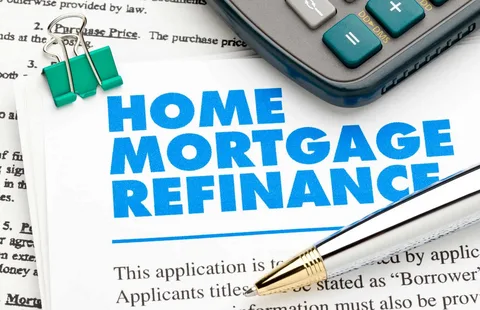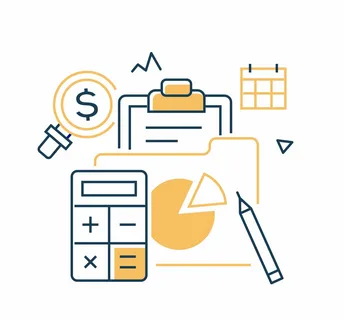
The Federal Housing Administration (FHA) FHA Mortgage Rates in 2024 mortgage program has long been a lifeline for homebuyers, particularly for those with lower credit scores or limited down payment capabilities. FHA mortgage rates are typically lower than conventional loan rates, making homeownership more accessible to a broader audience. As we move into 2024, understanding how FHA mortgage rates work and the factors that influence them is crucial for prospective buyers.
What Are FHA Mortgage Rates?
FHA mortgage rates are the interest rates set on loans insured by the Federal Housing Administration. These rates are generally lower than those for conventional mortgages, primarily because the federal government insures these loans, reducing the risk for lenders. This insurance encourages lenders to offer more favorable terms, even to borrowers who might not qualify for conventional loans.
Key Factors Influencing FHA Mortgage Rates
Several factors determine FHA mortgage rates, and understanding them can help you secure the best possible deal:
- Credit Score: Although FHA loans are designed for borrowers with lower credit scores, your credit score still plays a significant role in the rate you’ll be offered. Generally, a higher credit score can secure a lower interest rate.
- Loan Amount and Term: The size and length of your loan also impact your rate. For instance, larger loan amounts or longer terms typically come with higher interest rates due to the increased risk to the lender.
- Down Payment: While FHA loans require a lower down payment—often as little as 3.5%—a higher down payment can sometimes lead to a lower interest rate. This is because a larger down payment reduces the lender’s risk.
- Market Conditions: Economic factors, including inflation, unemployment rates, and Federal Reserve policies, influence mortgage rates across the board. Staying informed about these conditions can help you time your loan application to secure the best rate.
- Debt-to-Income Ratio (DTI): Lenders use your DTI ratio to assess your ability to manage monthly payments and repay debts. A lower DTI can make you a more attractive borrower, potentially securing a better rate.
How FHA Mortgage Rates Differ from Conventional Rates
FHA mortgage rates are often lower than conventional mortgage rates, but there are trade-offs to consider:
- Lower Rates but Higher Insurance Premiums: While FHA loans offer lower interest rates, they require mortgage insurance premiums (MIP) for the life of the loan. These premiums can offset the savings from the lower interest rate over time.
- More Accessible But With Limits: FHA loans are more accessible due to their lenient credit requirements and lower down payments, but they also come with loan limits that vary by region. These limits can be lower than the amount you might qualify for with a conventional loan.
- Flexibility vs. Cost: The flexibility of FHA loans makes them ideal for first-time homebuyers or those with less-than-perfect credit. However, the lifetime cost, when factoring in MIP, may be higher than a conventional loan, especially if you plan to stay in the home long-term.
How to Secure the Best FHA Mortgage Rate
To secure the best FHA mortgage rate, follow these strategies:
- Improve Your Credit Score: Even though FHA loans are designed for those with lower credit scores, improving your score before applying can help you secure a lower rate. Pay down debts, correct any errors on your credit report, and avoid taking on new credit in the months leading up to your application.
- Increase Your Down Payment: If possible, aim to make a down payment of at least 10%. Not only could this reduce your interest rate, but it may also shorten the duration for which you’ll need to pay MIP.
- Shop Around for Lenders: Don’t settle for the first offer you receive. Different lenders offer different rates, and even a small difference can save you thousands over the life of the loan. Obtain quotes from multiple lenders and compare the terms carefully.
- Consider Paying Points: Discount points allow you to pay an upfront fee to reduce your interest rate. This can be a good strategy if you plan to stay in your home for a long time, as the reduced rate will save you money over the years.
- Lock in Your Rate: Once you find a favorable rate, consider locking it in. Mortgage rates can fluctuate daily, and a rate lock can protect you from potential increases before your loan closes.
The Role of Mortgage Insurance in FHA Loans
One of the key differences between FHA loans and conventional loans is the requirement for mortgage insurance. FHA loans require both an upfront mortgage insurance premium (UFMIP) and an annual mortgage insurance premium (MIP). The UFMIP is typically 1.75% of the loan amount and can be rolled into the loan or paid at closing. The MIP, on the other hand, is an ongoing expense that you pay monthly.
- Understanding MIP: The annual MIP is calculated based on your loan amount, loan term, and loan-to-value ratio (LTV). Typically, you’ll pay between 0.45% and 1.05% of the loan amount each year, divided into monthly installments.
- Lifetime MIP Requirements: Unlike private mortgage insurance (PMI) for conventional loans, which can be canceled once you reach 20% equity, MIP on FHA loans usually remains for the life of the loan if your down payment is less than 10%. This makes it important to weigh the long-term costs when choosing an FHA loan.
Should You Refinance Your FHA Loan?
As you pay down your FHA loan and build equity in your home, you may consider refinancing into a conventional loan to eliminate the MIP. Here are some scenarios where refinancing might make sense:
- Equity Threshold: If your home’s value has increased significantly, refinancing to a conventional loan could help you avoid the lifetime MIP and potentially secure a lower interest rate.
- Improved Credit: If your credit score has improved since you first took out your FHA loan, refinancing could allow you to qualify for a better rate on a conventional loan.
- Lowering Monthly Payments: Refinancing can reduce your monthly payments, especially if current interest rates are lower than when you originally took out your loan.
However, it’s important to consider the closing costs associated with refinancing and calculate how long it will take to recoup these costs with the savings from your new loan.
Conclusion: Navigating FHA Mortgage Rates in 2024
FHA mortgage rates in 2024 continue to make homeownership accessible to a wide range of borrowers. By understanding the factors that influence these rates and taking proactive steps to secure the best deal, you can make an informed decision that aligns with your financial goals. Whether you’re a first-time homebuyer or considering refinancing an existing FHA loan, staying informed and prepared is key to maximizing the benefits of FHA financing.






